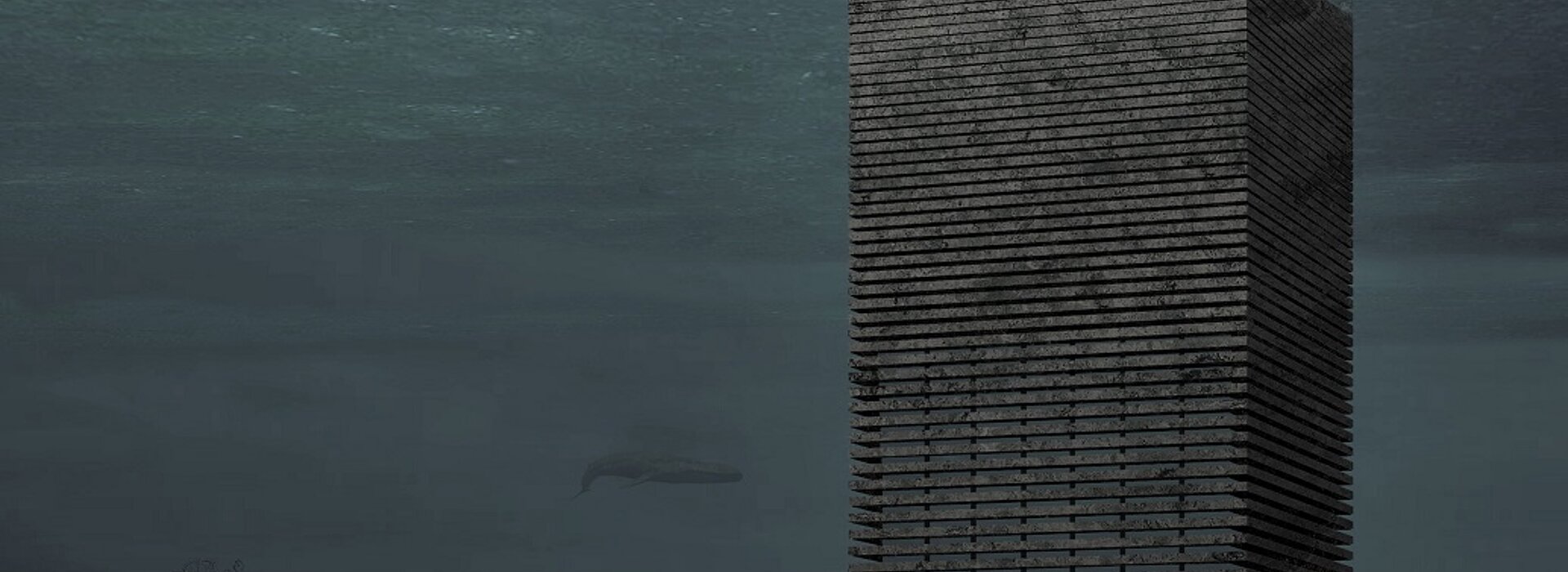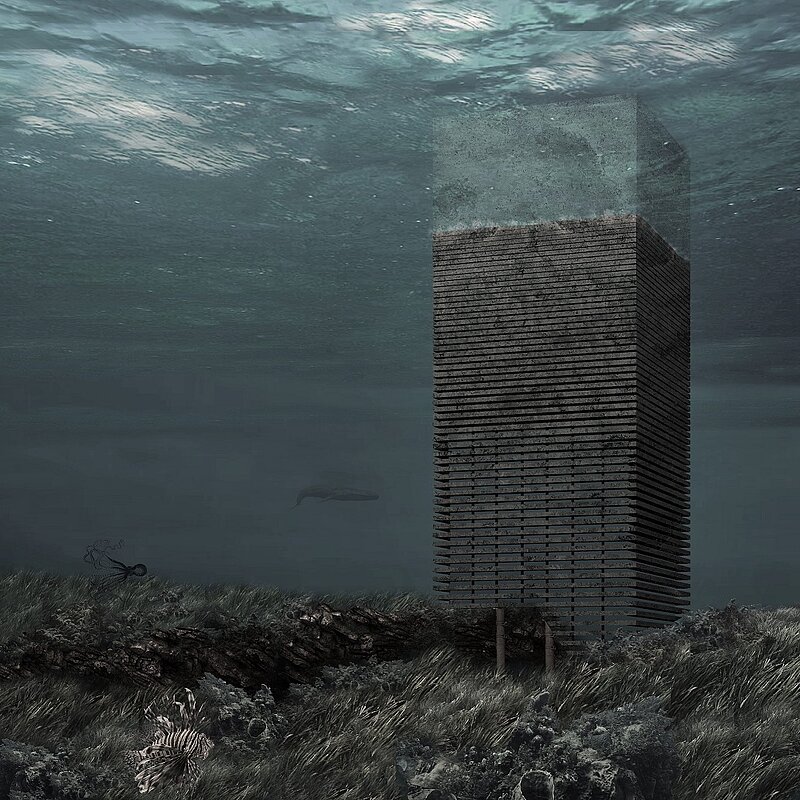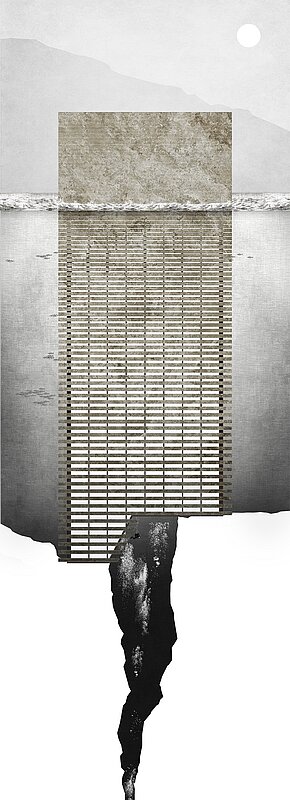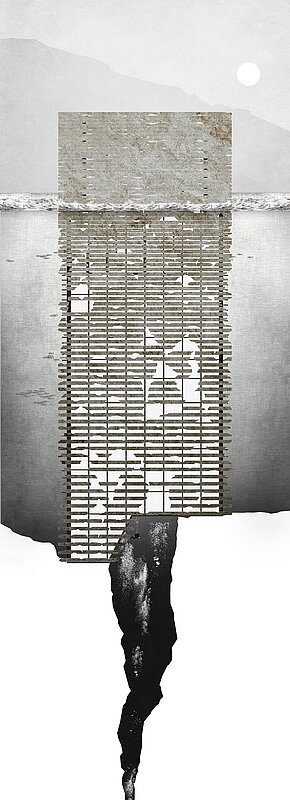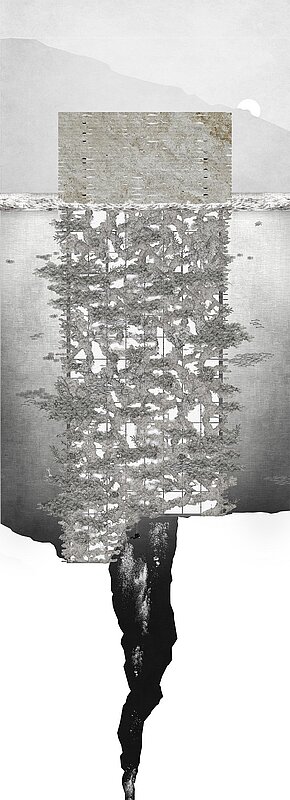KARST inverted aquarium
- Year2019
- LocationIschia, Italy
In the depths of the Neapolitan waters, small bubbles escape from the protected seabed of the Kingdom of Neptune. This is the C02 released by the volcanic activity of the lschia Island. This unique location makes the Island a hotbed for oceanographic research. Indeed, the C02 saturation drastically acidifies the water and induces a modification of the underwater ecosystems.
Also, the oceans tend to acidify because they capture the atmospheric C02, always increasing. lschia then appears as a window opens on the future: the water pH surrounding the island would be the one of all the oceans in 300 years.
The Karst project is an underwater oceanographic observatory specialized in the study of extreme acidity systems. Temporality was a central element in the conception of the building:
Its steel structure supports a second limestone skin. Over time, it will be altered, eroded by the acidity of the water. This decomposition gives rise to the possibility of a new ecosystem inspired by the main types of Mediterranean environments previously identified (sandy bottom, semi-deep cave).
The laboratory's researches will focus on this representative ecosystem. It represents a full-scale simulator of the future state of the oceans.
A hundred years have passed and the layer of limestone is completely eroded, the activity of the observatory ends. The building then enters its second cycle of life, it begins its return to nature.
Thanks to an electric current that runs through the steel structure, now discovered, electrolysis happens. This chemical process allows the accretion of limestone on the inert matter, which is gradually covered by corals. The observatory of man becomes a reef. After their life there, a sustainable habitat is born. We choose, here, not to think a zero footprint building, but a building with a positive one.
